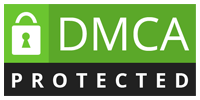Coronavirus is everywhere. It isn’t just infecting humans, but cyberspace as well. Yes, this highly infectious disease has taken the lives of nearly 100,000 and infected more than 1.5 million.
But it’s not all about counting the numbers and waiting till these figures increase, because — they will increase.
Nonetheless, it’s just a matter of time before the stats dwindle. But that time hasn’t yet come. This is why it’s vital for us to look broader and see the direct implicants this has on our society, both in the economic and technical perspective.
We’re living in a time of great crisis, and now is the best time for us to make use of our resources, more specifically cybersecurity.
But why?
Fake News on the Loose
More people are getting hooked to social media, that it has now become the norm for billions of people around the globe to wait for news about the pandemic. It has become a global hype as people feel the need to burst out their full emotions on social media.
The result? Fake news. Supposed news outlets are bringing a ton of fake news out there about the coronavirus. These vary in scope and style, with some saying that a simple warm glass of water can kill the virus.
There’s also one news saying that mixing liquor with bleach and drinking it can make you invincible from the pesky COVID. The world is already crazy. Why add to this craziness?
Unfortunately, boomers or those aged 40 to 60-years-old are the usual ones who fall prey to fake news as they easily believe whatever they see on social media. They even directly share it on their timelines and newsfeed, that they just add fuel to the flame.
Donations to Scammers
We feel sad, we pity the infected and those who have lost their jobs, and we feel the need to help them. That’s human nature.
But then, it’s also human nature to prey on the goodness of others. Welcome the scammers! This is a growing issue these days, and it comes in a very promiscuous and common outlet — email and (again) social media.
Fundraising efforts, supposed charities, and donation drives that appear to be a way for people to give money to the poor.
Don’t easily believe these. You need to be vigilant and learn to inspect the “charity” you’re giving the money to. Because there’s a growing number of reports where these donations don’t really go to the affected, but to opportunists.
Online Privacy is at the Brink
Have you heard the news about people creeping into your video conference calls? If so, then that’s one good example of how insecure our online presence is now.
Schools are called off, and so, students are asked to stay at home and attend online classes instead.
It sounds like a good idea, right? But unfortunately, this has also been a way for trolls to intervene and make themselves known, just like what happened when a troll crept into an online class and said indecent words to a number of students.
Conclusion
The aforementioned issues are real-life examples of what the world has become due to this menacing pandemic. And it isn’t just affecting the real world, but cyberspace as well.
To quell these issues, it’s imperative for companies to strengthen their cybersecurity so that we can somehow make this already unsafe world, safer — with the help of cybersecurity.








